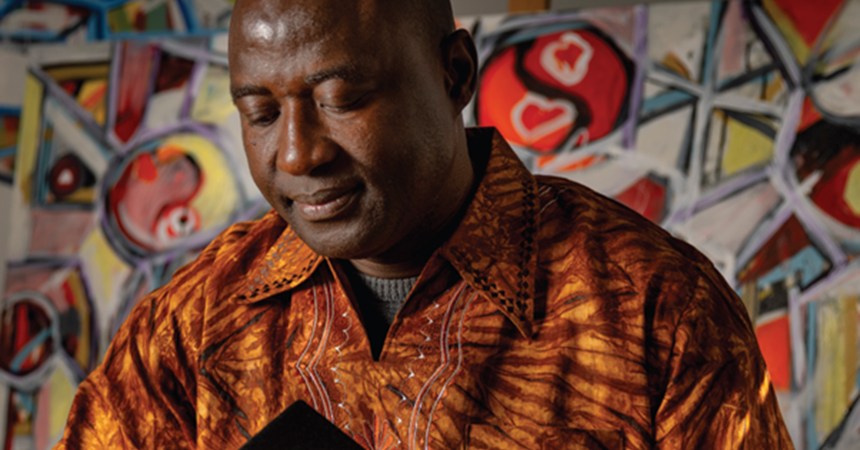When John Sandy walked across the Great Hall stage at the University of Newcastle in June it was an emotional moment.
For the last six years, he has been studying a Bachelor of Social Work with a dream of helping more people.
For John, it’s an incredibly encouraging achievement – when he was escaping war in Sierra Leone in 1991, he wasn’t sure what would come next.
“It’s so exciting and empowering – I’ve achieved something that I was hoping for in my future,” he says.
“It’s been a long journey, I started in 2016 but I’ve actualised my potential by gaining a Western education.”
John added the pain and hardship he has suffered has made his academic achievement so much more satisfying.
“My journey to Australia was a long, very complex, and very traumatic journey,” he says.
“I became a refugee as a result of war, it was not something that I chose.”
When the war broke out in Sierra Leone, John became displaced and forced to live in inhumane conditions in a refugee camp in Guinea. He was torn apart from his wife, Mary, who he later learned had been transported across the world, to Australia, as a refugee.
To reconnect with Mary, he had to walk for three weeks and two days to another camp to find a man with a mobile phone.
Once he made contact it was another six years until they were finally reunited.
“The migration experience was really traumatic, I was rejected three times but eventually I got a visa to join her in 2011,” he says.
John and his wife were supported by the Catholic Diocese of Maitland-Newcastle and CatholicCare Social Services Hunter-Manning throughout the entire process.
After reaching Australia, John dedicated his time to volunteering with the organisation’s Disaster and Relief Agency and now, he works at CatholicCare’s Refugee Hub supporting hundreds of refugees settle into the community.
John’s arduous path to Australian residency, and later citizenship, has made him uniquely qualified to assist those in desperate need of support.
John hopes his story and new qualifications inspire people to follow their dreams.
“I want young people to see me as a role model – as someone who has mastered their trauma and been successful,” he says.
“I have used my trauma as a strength, not as an identity or something to put me down.”
When it comes to what’s next for John, the answer is simple. He wants to keep helping people in any way he can – he’s planning on using his degree as a stepping stone to further study.
“When I was sitting in the Great Hall on my graduation day, I just felt like I needed to learn more,” he explains.
“I want to study more to gain more power and knowledge around how to support people who come from those traumatic backgrounds.
“I want to see how I can inform policymakers, especially within the context of community organisations for people to be trauma aware.”
He adds that he’s already using what he learned from the degree through his work at the Refugee Hub.
“I apply it every day in my practice, in my writing and my engagement with people,” he said.
“I am very mindful of their background and want to make them emotionally safe to ensure they don’t experience any traumatization.”
His life advice is something we could all learn from.
“Appreciate what you have, seek support, and have the courage to share your vulnerability,” John says.
“We are all social beings, we all need help, but it doesn’t mean we can’t follow our dreams. Don’t give up.”
Follow mnnews.today on Facebook.



























































































